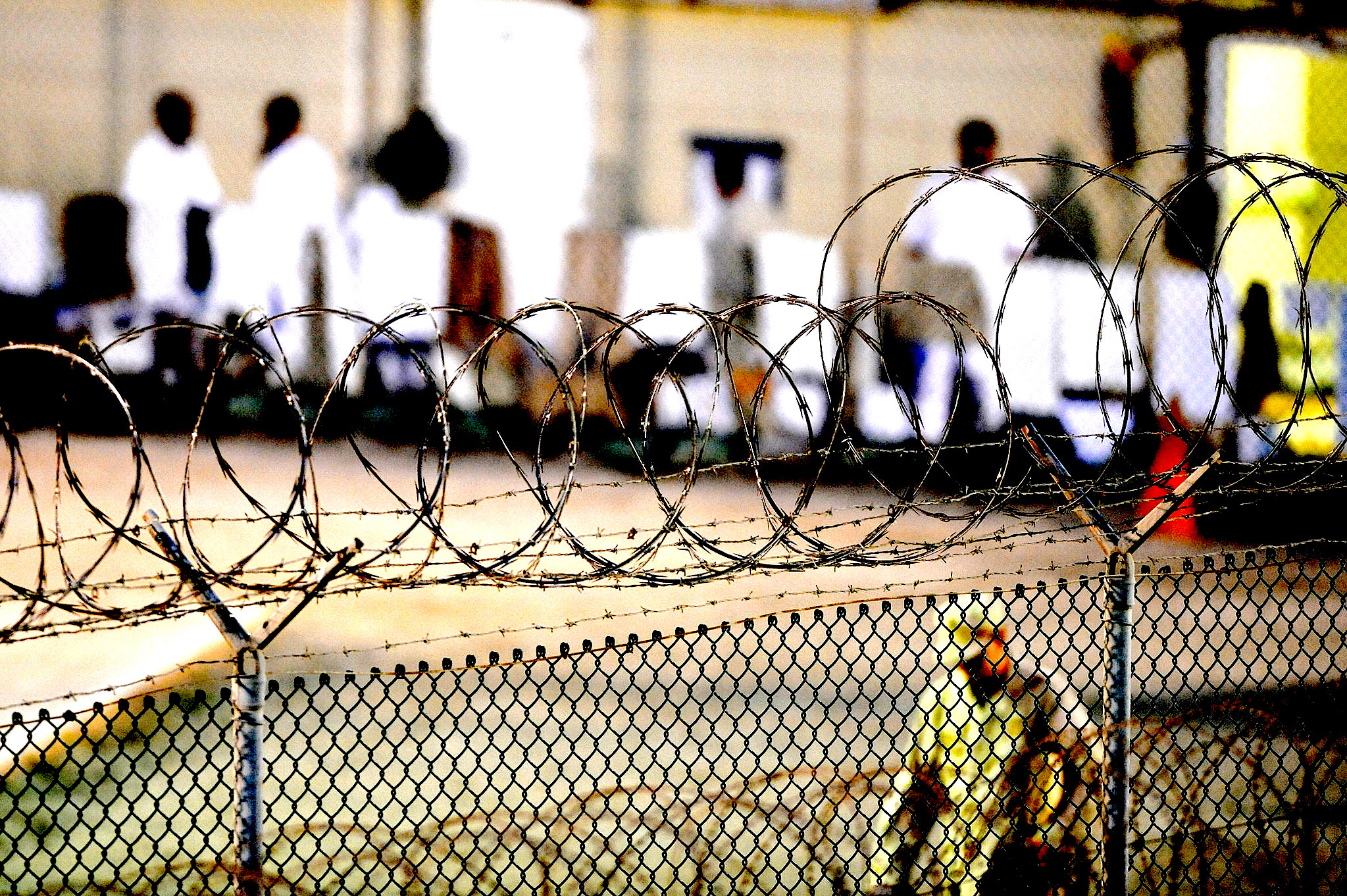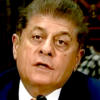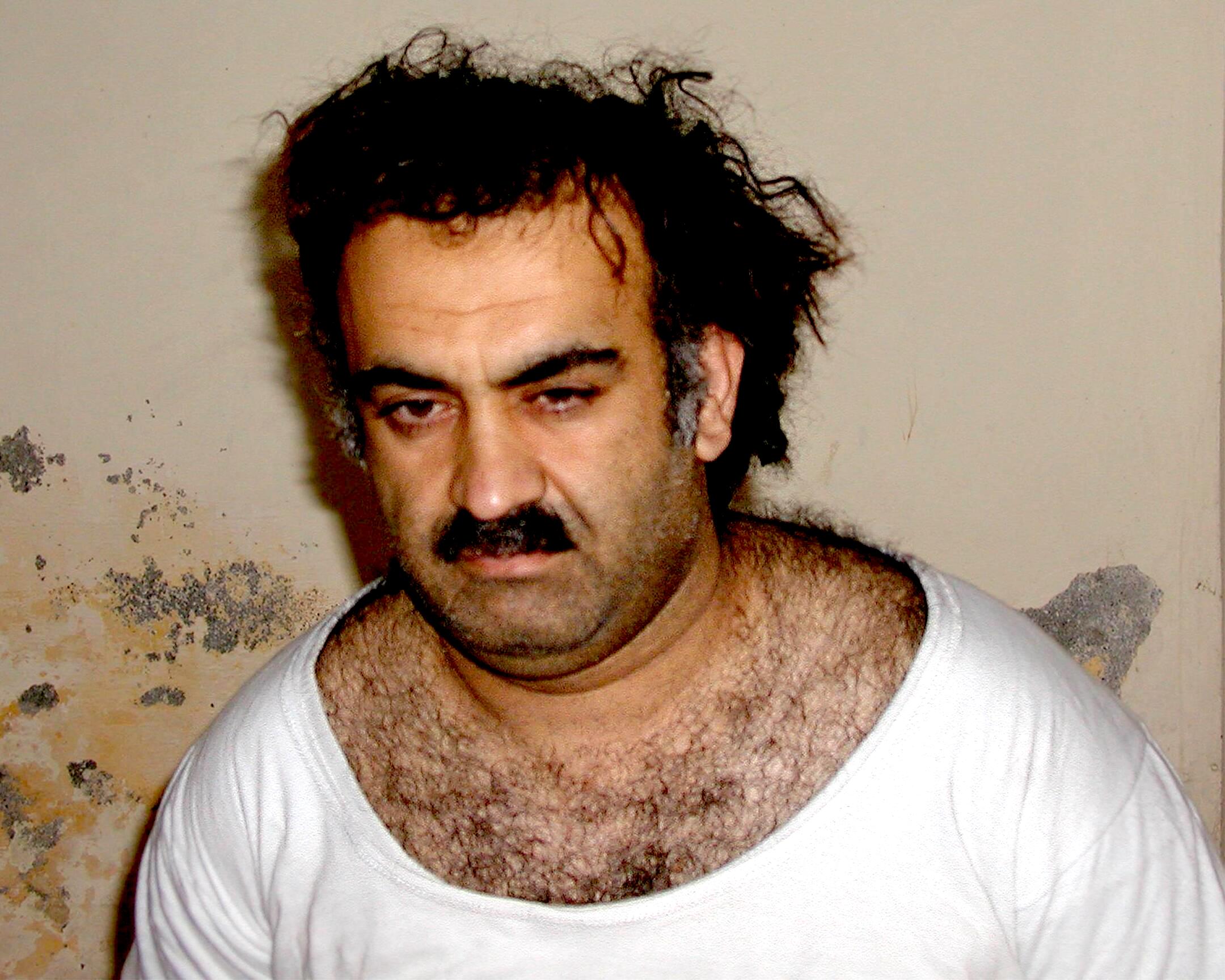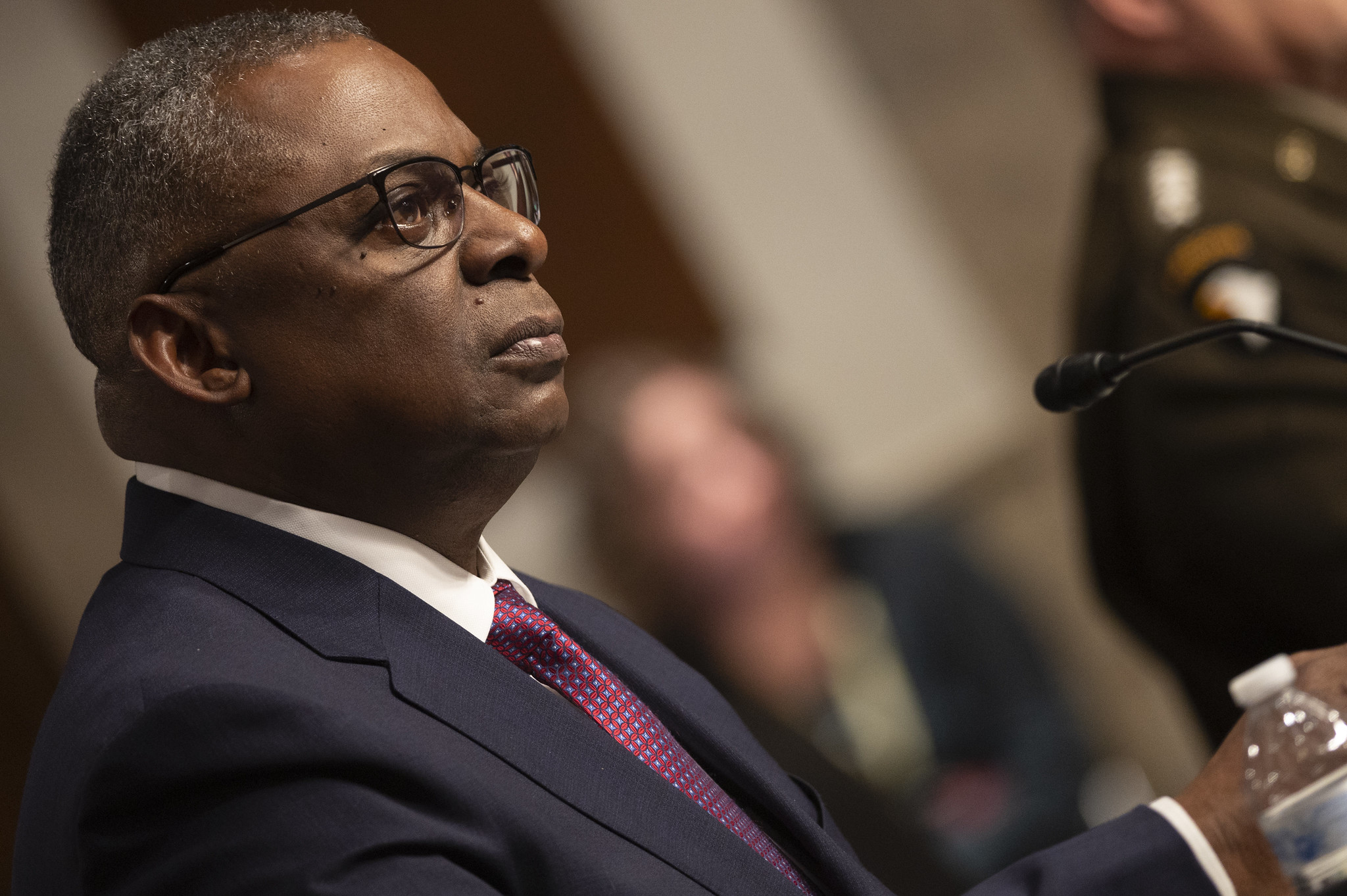Andrew P. Napolitano on a state of affairs unheard of in American jurisprudence, where judges don’t have bosses telling them what guilty pleas to accept and what to reject.

A Navy guard patrols a detainee recreation area at Camp Delta in Guantanamo Bay, July 2010. (Joint Task Force Guantánamo Bay/Flickr/ CC BY-ND 2.0)
 It is always dangerous to human freedom and due process when politics interferes with criminal prosecutions. Yet, present-day America is replete with tawdry examples of this.
It is always dangerous to human freedom and due process when politics interferes with criminal prosecutions. Yet, present-day America is replete with tawdry examples of this.
The recent exposures of the political machinations of the chief justice of the United States in the presidential immunity case is just one sad example of the highest judge in the land determined to change the law, even at the cost of sacrificing good jurisprudence; and this from a jurist who once promised the Senate that he envisioned himself as a mere baseball umpire — just calling balls and strikes.
Now, he is a historical revisionist, ruling that the Framers actually wanted an imperial presidency.
His rationale was his understanding of history — not the laws, not precedent, not the Constitution, not morality; a first in modern Supreme Court history.
But this awkward behavior, in which he also engaged when he changed his mind at the last minute and saved Obamacare from constitutional extinction because he was convinced that Mitt Romney would defeat Barack Obama in 2012, sends messages to those who enforce the law and those who interpret it that due process can take a back seat to politics.
That is happening at the prosecution of Khalid Shaikh Mohammed at the U.S. Naval Base in Guantanamo Bay, Cuba. Here is the backstory.
After the dust settled from the attacks on 9/11 and the federal government responded by assaulting the Bill of Rights at home and innocent Afghan peasants abroad, it declared that the mastermind of the attacks was Osama bin Laden.
It never charged bin Laden with any crime, but it dispatched a team of killers to assassinate him in his home, which they did. Then the feds decided that bin Laden was not the mastermind; Mohammed was.

Khalid Sheikh Mohammed in 2003 after his capture.
(Wikimedia Commons, Public domain)
By the time of bin Laden’s death, Mohammed had been captured and had undergone years of torture at the hands of the C.I.A., and he was incarcerated at the prison camp at Gitmo.
He was eventually charged with conspiracy to commit mass murder and was put into the hands of a military tribunal, which Congress had established at the insistence of the George W. Bush administration believing that military men on a military court would administer swift and rough justice.
Then, his lawyers argued successfully to the Supreme Court that conspiracy is not a war crime and thus not triable before a military tribunal. In so ruling, the Court overruled an appellate court decision written by the Supreme Court’s chief justice back when he was an appellate judge — another Supreme Court first.
Then Congress changed the format of the tribunals so that they’d follow the Federal Rules of Criminal Procedure and effectively turned them into federal courts in Cuba with military trappings.
Pre-trial proceedings in the Mohammed case have been conducted on and off since 2012. He is on his second team of defense counsel, as the first team was infiltrated by an undercover F.B.I. agent and his lawyers resigned.
Fourth Judge
Mohammed is being tried by his fourth judge. The first judge ruled that because his confession was made under and as a consequence of torture, it could not be used at trial. But the prosecutors persuaded judges No. 2, 3 and 4 to reconsider the decision of judge No. 1 on whether the confession was lawful.
Then, a second team of prosecutors entered the case and they told the fourth judge in the case that if he permitted Mohammed’s confession at trial, Mohammed and his physicians would testify as to the psychological effects of torture, and they could not ethically defend what the C.I.A. did. They also told the judge that they had begun plea negotiations with defense counsel.
Two months ago, the defendants and the government and the judge agreed to a plea agreement and all relevant persons signed it, including the Pentagon official supervising all prosecutions, a retired Army general whose last assignment in her active-duty military career was as the chief judge of the Army Court of Appeals.
The plea agreement saved the government’s lawyers from having to defend Bush’s torturers, and it saved the defendants from the death penalty.
Then, after the plea agreement became publicly known, the secretary of defense — who is not a lawyer — belatedly overruled the retired general supervising the case and the legal team prosecuting it and the judge trying it and ordered them to rescind the plea agreement because he felt that the American public should learn the evidence in the case.
Stated differently, the last thing the Biden administration needs in the midst of a presidential election campaign is to appear less than aggressive in its pursuit of 9/11 justice.

U.S. Secretary of Defense Lloyd Austin in 2022. (DoD, Lisa Ferdinando)
So, here is the legal dilemma now confronting the current judge — who is an active-duty colonel in the Army. All parties and the court have agreed to a plea agreement. But the judge’s boss — the secretary of defense — has ordered him to reject it.
This is a state of affairs unknown and unheard of in American jurisprudence, where judges don’t have bosses telling them what guilty pleas to accept and what to reject. This has only come about due to Bush’s lust for torture and the post-9/11 Congress’ antipathy to the Constitution and the now fashionable entry of politics into the case.
Gitmo costs half a billion dollars a year. In its 20-plus year existence, it has yet to conduct a trial of any person for 9/11. And the prosecutors who know the case have told their bosses in the Department of Defense that trying the case will expose American troops to vicious retribution because the trial will expose the heinous acts the C.I.A. inflicted upon the defendants.
Under federal law, there are no do-overs once a guilty plea has been entered and accepted. But we have a government of politicians whose fidelity to law and the Constitution is barely an afterthought.
Andrew P. Napolitano, a former judge of the Superior Court of New Jersey, was the senior judicial analyst at Fox News Channel and hosts the podcast Judging Freedom. Judge Napolitano has written seven books on the U.S. Constitution. The most recent is Suicide Pact: The Radical Expansion of Presidential Powers and the Lethal Threat to American Liberty. To learn more about Judge Andrew Napolitano, visit JudgeNap.com.
Published by permission of the author.
COPYRIGHT 2024 ANDREW P. NAPOLITANO
DISTRIBUTED BY CREATORS.COM
The views expressed are solely those of the author and may or may not reflect those of Consortium News.
Please Donate Today to CN’s Fall Fund Drive



I bet Cuba has long had a military operation planned and mapped out for when America collapses like Soviet Russia did, in which they plan to liberate that legal black hole at Gitmo that blots their island.
“He changed his mind at the last minute and saved Obamacare from constitutional extinction because he was convinced that Mitt Romney would defeat Barack Obama in 2012.”
Wendell Potter was vice president of corporate communications for the health insurance company CIGNA. According to him Obamacare was challenged in the Supreme Court because
1) The insurance companies liked it.
2) They wanted the Supreme Court to set precedent by upholding Obamacare. That would inhibit any later court from ruling against it.
In short, the challenge was fake and intended to fail.
That is what the chief justice of the United States is doing, “just calling balls and strikes”, as he subjectively determines them to be, only the game has never been as entertainingly distracting as baseball.
In making this analogy, it says that the Judge is out of touch with political reality, which has now legislated itself to be in the position to override any, and every constitutional law of the land, as he, the Attorney General, of the country, sees fit to decide.
After all, it is the politicians of the Deep State league who arbitrarily set the precedents, and interpret the rules, via their selected umpire, play-by-play, according to their lawbooks.
Dear Mr. Napolitano I would hope that you, a judge, wouldn’t be so silly as to think that American jurisprudence actually dispensed justice.
Where are the conscientious awyers?